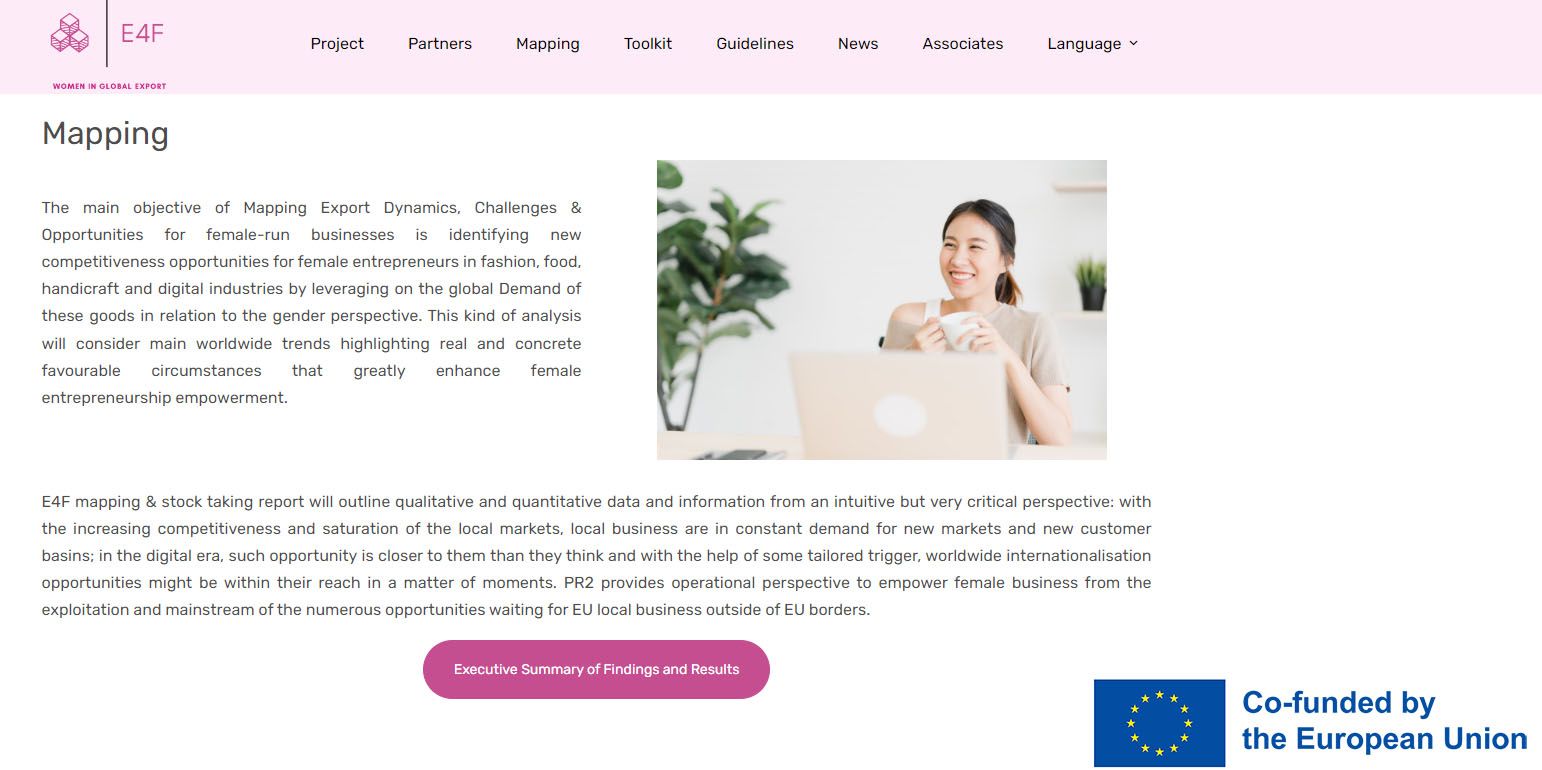
SMEs are the economic core of Europe and social buffer generating jobs. Internationalisation and Export outside of Europe represent a great opportunity, creating million jobs. However, the socio-economic potential of EU SMEs is underexploited: only 18% of European SMEs export to extra-EU markets and are truly international. Official papers from the European Commission (EU/UN-INTRACEN report 2019 “From EU to the World: Understanding Challenges for EU Businesswomen”) confirmed that the extra-EU internationalisation process is exacerbated for female enterprises. Interviews with female entrepreneurs showed that this target group needed the following trends:
E4F project aims at empowering women-led businesses, creating opportunities to increase their productivity, expanding the geographical markets in which they operate. E4F aims to implement the following points:
The training material of the project will be developed on the basis of the results and findings of the desk research carried by partners in the last nine months.
Partners analysed quantitative indicators on the phenomenon of internationalisation of EU female-led SMEs, Qualitative indicators on internationalisation in their country (skills-gap and need assessments), opportunities and challenges women entrepreneurs may find.
The main objective of the research was identifying new competitiveness opportunities for female entrepreneurs in fashion, food and handicraft industries by leveraging on the global demand of these goods in relation to the gender perspective. This kind of analysis considered the main worldwide trends highlighting real and concrete favourable circumstances that greatly enhance female entrepreneurship empowerment.
To find more about the project visit www.e4f-network.eu